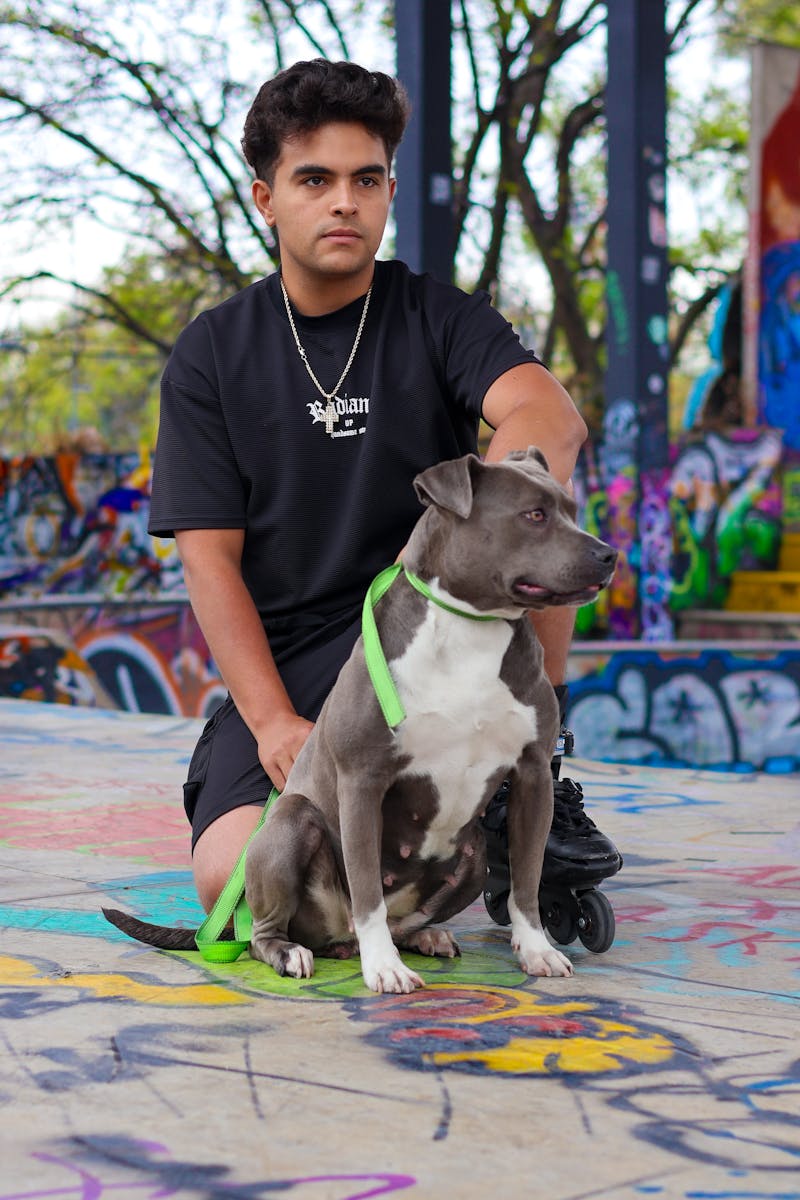Upcoming Changes in Pet Ownership Laws: What to Expect in 2025
Understanding the Landscape of Pet Ownership Laws
In recent years, the bond between humans and pets has become more profound than ever, evolving into a special relationship that transcends mere ownership. Yet, as our understanding of pet welfare continues to grow, so does the complexity of pet ownership laws. Navigating through the legal landscape of pet ownership can feel overwhelming, especially when these laws vary widely by region. Let’s dive into the current state of pet ownership laws, emphasizing the pressing need for reform as society evolves.
A Patchwork of Pet Ownership Laws
Across the United States and beyond, pet ownership laws are a patchwork of regulations that can leave pet owners scratching their heads. In some states, certain breeds are heavily regulated, while others are more lenient. For instance, areas like Denver, Colorado, have laws banning specific dog breeds, while many states simply require a leash or muzzle in public spaces. Even pet licensing requirements can differ significantly; some regions mandate annual registrations, while others do not have any requirements at all.
The Call for Reform
As our knowledge of animal behavior and welfare develops, many advocate for a reevaluation of these outdated laws. Animal rights organizations argue that laws should reflect not only the safety of pets but also promote responsible ownership. For example, initiatives focusing on spay/neuter programs and pet education can foster better relationships between pets and their owners, ultimately reducing the need for restrictive laws.
Real-World Implications
Consider the story of Max, a lovable pit bull mix living in a breed-restrictive neighborhood. His owner, faced with the fear of being forced to surrender him, found herself navigating a legal labyrinth that felt more punitive than protective. Such stories highlight how legislation can fail to account for responsible pet ownership and the many nuances of animal behavior.
Taking Action for Change
So, what can be done? Advocates suggest several actionable steps for reforming pet ownership laws. Engaging in local community discussions, supporting animal welfare legislation, or even volunteering for organizations dedicated to pet welfare can foster change. Additionally, educating oneself and others about responsible pet ownership practices is vital in creating a more compassionate society for our furry friends.
In conclusion, the landscape of pet ownership laws is complex and constantly evolving. By understanding these laws and their implications, we can pave the way for more equitable regulations that prioritize both pet welfare and owner responsibility.

Emerging Trends in Animal Rights
The animal rights movement is gaining momentum, transforming perceptions of our pets from mere animals to cherished family members deserving of respect and protections. As societal attitudes shift, the implications for our laws are both profound and necessary. Recent trends indicate a deepening understanding of animal welfare, which is prompting calls for legal changes to reflect the evolving human-animal bond.
Changing Attitudes Towards Pets as Family
Recent surveys highlight a significant cultural shift in how we view our pets. More than 90% of pet owners in a 2022 study affirmed that they consider their dogs and cats as family members. This sentiment underscores a growing recognition that pets are not just companions but integral parts of our households with emotional and social needs that warrant attention in our legal systems.
This shift has spurred discussion about granting animals greater recognition in law. Initiatives like the Animal Welfare Act have taken steps forward, yet many advocates argue that these measures still fall short of encapsulating the emotional intricacies involved in pet ownership. Consequently, there are increasing calls from both animal rights organizations and the public for more comprehensive rights and protections for pets.
Legislative Changes on the Horizon
With changing public sentiments comes the potential for legislative reform. A recent breakthrough occurred when several states passed laws that allow pets to be included in divorce proceedings, ensuring that both parties consider the pet’s welfare as they part ways. No longer are pets treated as mere property; they are increasingly viewed as vital, sentient beings.
Moreover, legislation aimed at banning puppy mills and promoting adoptive rescue has gained traction. Such laws not only protect animals from inhumane practices but also encourage responsible pet ownership. These developments signal a broader acceptance that animals deserve rights and protections, much like human family members.
The Role of Advocacy and Community
Community involvement is crucial in advancing animal rights and welfare legislation. Local animal rights groups are driving change through educational campaigns, encouraging responsible pet ownership practices, and mobilizing communities to advocate for legislative reforms. For instance, organizations are increasingly pushing for positive changes in local governments to adopt ordinances that protect pets, such as stricter penalties for animal abuse and cruelty.
Engagement at the grassroots level lends powerful momentum to this movement. Pet owners can also partake by discussing the importance of animal welfare in community meetings, sharing informative resources on social media, or even getting involved with local shelters to promote adoption.
A Brighter Future for Animal Rights
As attitudes continue to evolve, the future looks promising for enhancing animal rights. The growing recognition of pets as family members is transforming how we legislate their care and protection. By staying informed and participating in ongoing conversations about animal welfare, we collectively advance the movement toward comprehensive reforms that protect our beloved companions.
Engaging with local lawmakers and sharing personal experiences can pave the way for more robust protections.

Anticipated Legislative Changes for 2025
As we look ahead to 2025, significant changes are on the horizon that aim to reshape pet ownership laws and enhance animal welfare standards across the United States. Activists, lawmakers, and concerned citizens are spearheading these initiatives, driven by a collective desire to ensure that pets receive the care, love, and protection they rightly deserve. Let’s explore some of the anticipated legislative changes that could impact pet owners and animal welfare in the coming years.
Stricter Regulations on Breeding Practices
One of the most talked-about areas of reform involves instituting stricter regulations on breeding practices. The rise of puppy mills and unethical breeding has alarmed animal advocates, highlighting the need for regulations that prioritize animal welfare. Proposed changes include:
- Mandatory Breeder Licenses: Breeders may be required to obtain licenses, ensuring that they adhere to ethical practices and provide adequate living conditions for their animals.
- Limitations on Litter Sizes: To combat overbreeding, new laws could cap the number of litters a breeder is allowed to produce annually, helping to reduce the number of animals in shelters.
- Health and Welfare Inspections: Routine checks by regulatory bodies could be established, ensuring breeding facilities maintain high standards of care and hygiene.
These regulations would not only protect the animals being bred but also enable prospective pet owners to make informed choices about where their pets come from.
Enhanced Pet Licensing Requirements
As communities recognize the connection between responsible ownership and public safety, many localities are advocating for enhanced pet licensing requirements. Proposed licensing changes include:
- Annual Renewals: Some states are pushing for annual license renewals that require owners to demonstrate continued compliance with responsible pet ownership practices, such as vaccinations and spaying/neutering.
- Standardized Fees: Licensing fees could become standardized, ensuring that all pet owners contribute fairly to public resources dedicated to animal control and welfare.
- Education Components: Licensing programs may include mandatory education about pet care, training, and community safety, empowering pet owners to be responsible stewards of their animals.
By tightening these regulations, authorities aim to reduce the number of abandoned and neglected animals while fostering a culture of responsible pet ownership.
Implementation of Animal Welfare Standards
Perhaps one of the most significant shifts in the legislative landscape will be the establishment of comprehensive animal welfare standards. These standards could address various aspects of pet ownership, enforcing a more humane treatment of animals. Key proposals under discussion include:
- Minimum Care Requirements: Legislation could mandate that all pets receive basic standards of care, including proper nutrition, veterinary care, and safe housing.
- Regulations Against Animal Cruelty: Laws may be strengthened to impose harsher penalties for neglect and abuse, sending a clear message that animal welfare is a priority.
- Support for Rescue Organizations: Increasing support and funding for animal shelters and rescue organizations may also be on the table, providing them with the resources they need to care for animals in need.
As these welfare standards take shape, they promise to enhance the lives of countless pets, ensuring they are treated with the dignity and respect they deserve.
Conclusion
With 2025 on the horizon, there’s a palpable shift in the conversation surrounding pet ownership laws. The anticipated legislative changes focusing on stricter breeding regulations, enhanced pet licensing, and comprehensive welfare standards all point toward a future where pets are better protected and cared for. It is an essential step forward in rectifying the historical shortcomings in animal care legislation.

The Role of Advocacy Groups in Shaping Pet Ownership Laws
Advocacy groups play an instrumental role in shaping the landscape of pet ownership laws, influencing both legislation and public perception of animal welfare. These organizations raise awareness about responsible pet ownership and push for reforms that prioritize the well-being of animals. Through strategic campaigns and community engagement, they advocate for changes that can lead to improved regulations across the nation.
Key Players in the Advocacy Landscape
Several prominent organizations work tirelessly to influence pet ownership laws and animal welfare legislation. The Humane Society of the United States (HSUS), for example, has been at the forefront, advocating for laws that protect pets from cruelty and neglect. Their efforts have led to significant legislative victories, such as the ban on puppy mills in various states and broader regulations on pet breeding practices.
Another influential player is the American Society for the Prevention of Cruelty to Animals (ASPCA), which has launched campaigns aimed at raising public awareness about the responsibilities of pet owners. Their education programs inform potential pet adopters about the importance of understanding pet behavior and the need for proper care, ultimately shaping public opinion on what it means to be a responsible pet owner.
Influencing Public Opinion
Advocacy groups not only focus on legislative change but also play a crucial role in shifting public opinion. They harness the power of social media and community outreach to spread their message. For instance, during the campaign for breed-neutral laws in several states, organizations utilized storytelling, sharing personal experiences from pet owners who faced discrimination based on breed stereotypes. These compelling narratives helped to humanize the issue and rallied public support for more inclusive laws.
Furthermore, initiatives like “Adopt, Don’t Shop” have gained traction largely through the efforts of advocacy groups. These campaigns not only promote shelter pet adoption but also emphasize the importance of responsible ownership, highlighting the responsibilities that come with bringing a pet into your life.
Real-World Impact
Real-life impact is evident in regions where advocacy groups have successfully amended or introduced new laws. For instance, in California, a coalition led by various animal welfare organizations helped to pass the Pet Rescue and Adoption Act, which requires pet stores to sell only rescue animals. This not only curbs puppy mills but also encourages responsible sourcing and adoption, showcasing the tangible effects of advocacy.
Get Involved
The influence of advocacy groups demonstrates the power of collective action in effecting change within the pet ownership landscape. If you’re passionate about animal welfare, consider supporting local initiatives or participating in community discussions regarding pet legislation. Engaging with these organizations can help further their mission of promoting responsible pet ownership and humane treatment of animals.
In conclusion, advocacy groups are crucial in the evolving narrative of pet ownership laws. They educate the public, influence legislation, and champion the rights of animals, fostering a society that values compassionate care for all pets.

Preparing for the Changes
As we look toward the future of pet ownership laws, it’s crucial for pet owners to proactively prepare and adapt to the evolving landscape. Being informed about new regulations not only protects our furry friends but also empowers us as responsible guardians. Here are some practical steps you can take to ensure you stay ahead of the curve.
Stay Informed
One of the most effective ways to prepare for changing laws is to stay informed about local regulations and upcoming legislation that could impact pet ownership in your area. Here are a few resources to consider:
- Local Animal Control Websites: Check your city or county’s animal control website regularly for updates on laws, ordinances, and upcoming town hall meetings.
- Animal Welfare Organizations: Engage with reputable organizations like the ASPCA or the Humane Society, which often provide insights on relevant bills and advocacy efforts.
- Social Media Groups: Join local pet-owner communities on platforms like Facebook or Nextdoor. These groups can be very effective for sharing immediate updates and resources.
Advocate for Responsible Ownership
Advocating for responsible pet ownership extends beyond just your home; it encompasses the community as a whole. Here are some ways to make a difference:
- Educate Your Neighbors: Host or participate in community workshops on topics such as pet training, proper care, and the importance of spaying/neutering. This not only teaches responsible ownership but also strengthens community bonds.
- Support Local Legislation: Participate in public comment sessions during city council meetings to voice support for pet welfare initiatives. Your presence can significantly impact the perspectives of lawmakers and the community.
- Volunteer: Get involved with local shelters or rescue organizations. Your efforts can help promote responsible ownership practices and educate others about the importance of adopting versus shopping for pets.
Get Involved
Creating a community where pets are respected and cared for requires collective effort. Consider these additional actions:
- Pet Ownership Surveys: Collaborate with local authorities to gauge community sentiment on various laws affecting pets. This data can help advocate for necessary reforms.
- Foster Programs: Support or initiate foster programs that not only help animals find homes but also encourage potential pet owners to understand the responsibilities involved.
By taking these steps, pet owners can make a meaningful impact in their communities, fostering an environment that prioritizes responsible pet ownership. It’s essential not only to react to changes but to be actively involved in shaping them.
As we anticipate these important shifts in pet ownership laws, let’s ensure our voices are heard!
news via inbox
Nulla turp dis cursus. Integer liberos euismod pretium faucibua





